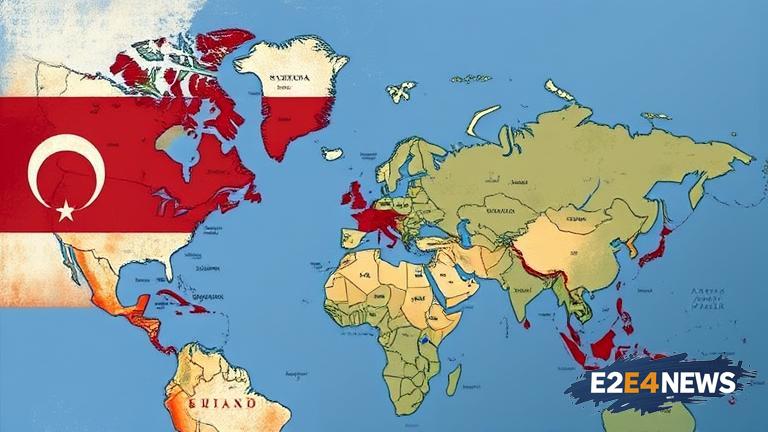The United States has long been known for its robust legal system and extensive reach of its laws. One of the key concepts that enable this reach is extra-territorial jurisdiction, which allows the US to enforce its laws beyond its borders. This concept has been increasingly used in recent years, particularly in the context of sanctions and trade regulations. The US government has used its laws to target individuals and companies around the world, often with significant consequences. For instance, the US has imposed sanctions on numerous countries, including Iran, North Korea, and Venezuela, in an effort to influence their behavior and policies. These sanctions can have far-reaching effects, impacting not only the targeted countries but also companies and individuals doing business with them. The use of extra-territorial jurisdiction has also raised concerns about the impact on global trade and international relations. Many countries have criticized the US for overstepping its bounds and interfering with their sovereignty. The European Union, for example, has pushed back against US sanctions on Iran, arguing that they are illegal and unfair. Despite these criticisms, the US continues to use its laws to exert influence around the world. The concept of extra-territorial jurisdiction is complex and has been the subject of much debate. Some argue that it is a necessary tool for the US to protect its interests and enforce its laws, while others see it as an overreach of power. The use of extra-territorial jurisdiction has also raised questions about the role of international law and the balance of power between nations. As the global economy becomes increasingly interconnected, the impact of US laws and sanctions will only continue to grow. Companies and individuals doing business internationally must be aware of the potential risks and consequences of US extra-territorial jurisdiction. The US government has also used its laws to target specific industries, such as banking and finance. The Bank Secrecy Act, for example, requires financial institutions to comply with US regulations and report suspicious transactions. This has led to a significant increase in compliance costs for banks and other financial institutions around the world. The use of extra-territorial jurisdiction has also had a significant impact on the global energy sector. The US has imposed sanctions on numerous energy companies, including those involved in the Nord Stream 2 pipeline project. These sanctions have had far-reaching consequences, impacting not only the companies involved but also the global energy market. The concept of extra-territorial jurisdiction is not limited to the US, however. Other countries, such as the European Union, have also begun to use their laws to exert influence beyond their borders. The EU’s General Data Protection Regulation (GDPR), for example, has had a significant impact on companies around the world, requiring them to comply with EU data protection regulations. As the use of extra-territorial jurisdiction continues to grow, it is likely that we will see increased tensions between nations and a greater impact on global trade and international relations. The US government must carefully consider the consequences of its actions and work to balance its interests with the need to respect the sovereignty of other nations. Ultimately, the concept of extra-territorial jurisdiction is complex and multifaceted, and its use will continue to shape the global economy and international relations for years to come. The long arm of US law and sanctions will only continue to grow in reach and impact, affecting companies and individuals around the world. It is essential for businesses and individuals to understand the risks and consequences of US extra-territorial jurisdiction and to take steps to comply with US laws and regulations. The future of global trade and international relations will depend on the ability of nations to balance their interests and respect the sovereignty of others.
